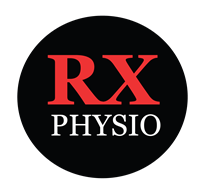If I close my eyes, I can remember it like it was yesterday – the sweet smell of babies who seemed to be forever in my arms and the heaviness of exhaustion that so often settles on the shoulders of mothers. I remember days when my hair went unwashed, the rings under my eyes stayed dark, and my house remained a mess as my time was consumed caring for my children – at one point three under the age of three. Everyone had told me to cherish these days and I did – feeding, diapering, bathing, singing, teaching, cuddling, and loving. Most days, I would just gaze at them after they had fallen asleep in my arms – trying to memorize how they looked, knowing that every day they were changing and growing. And then other days I would drive to Starbucks knowing the kids would all fall asleep in the van, just so I could have a latte in silence while they slept. And some days, tears would escape down my cheeks because at times it was just hard.
The fact is, being a mom is hard. Yes, it is amazing, wonderful and transformative – all of that and more, but it can also be challenging and intense. The loss of normalcy, changes in our relationships with partners and friends, and the overwhelming expectations that come with being a mother in today’s world can lead to heightened emotional strain – and that’s before we even factor in lack of sleep and often poor, inconsistent nutrition. Plus, “momming” is HARD physical work: lugging around babies and/or toddlers, diaper bags and carseats; pulling heavy strollers in and out of vehicles; and the list goes on. From a physical and emotional standpoint, I would hazard a guess that most mothers feel depleted. If you are one of these mothers, I want you to know that feeling of running on empty is pretty normal. So, what is a mom to do?
This dilemma was definitely present for me. I knew that getting active would be of great benefit, but as a mother with small children, I felt a crush of guilt that kept me from spending any time on myself. Fortunately, over time, I slowly came to understand the truth behind this familiar quote: you cannot pour from an empty cup. With this realization, I began to get active again – initially in exercise classes where I could bring my little ones along. Over time, I got stronger and fitter, but more importantly, I actually became a better mom.
With exercise, my body became more resilient and capable of being the fun, active mom that I wanted to be. Carrying kids and their gear, running with and after them, and playing with them on the playground all became so much easier. Exercise also provided an outlet for stress relief, making me happier and, to my husband’s benefit, less irritable! And although not perfect, I have become more confident and comfortable in my body, which I’m grateful for as my three daughters watch my every move. I’m keenly aware that my relationship with my own body will influence their relationships with theirs.
As parents, we can be tremendous role models for our children, teaching them to love and respect their bodies by doing so with our own. We can illustrate how to lead a healthy lifestyle. We can show them that being active can be not only a normal part of life but also an very enjoyable one.
Nowadays, the fullness of my cup fluctuates with the ebb and flow of life, but I make it a priority to find time to exercise. Doing so is not always easy, but it’s worth it because it brings out the best mom in me. My kids deserve that and so do I. And so do you and yours. ♥
If you are a mom and want to get active but need some guidance or have had some issues and are unsure of how to get active safely, please feel free to reach out to me! I would love to help you in your journey.
Teresa Waser is a physiotherapist and owner of RX Physiotherapy, in Leduc, Alberta. She has a Master of Science in Physical Therapy from the University of Alberta, in addition to several years of continuing education and experience treating patients of all ages. Outside of the clinic, she coaches running and CrossFit and is passionate about helping others live life to the fullest.
